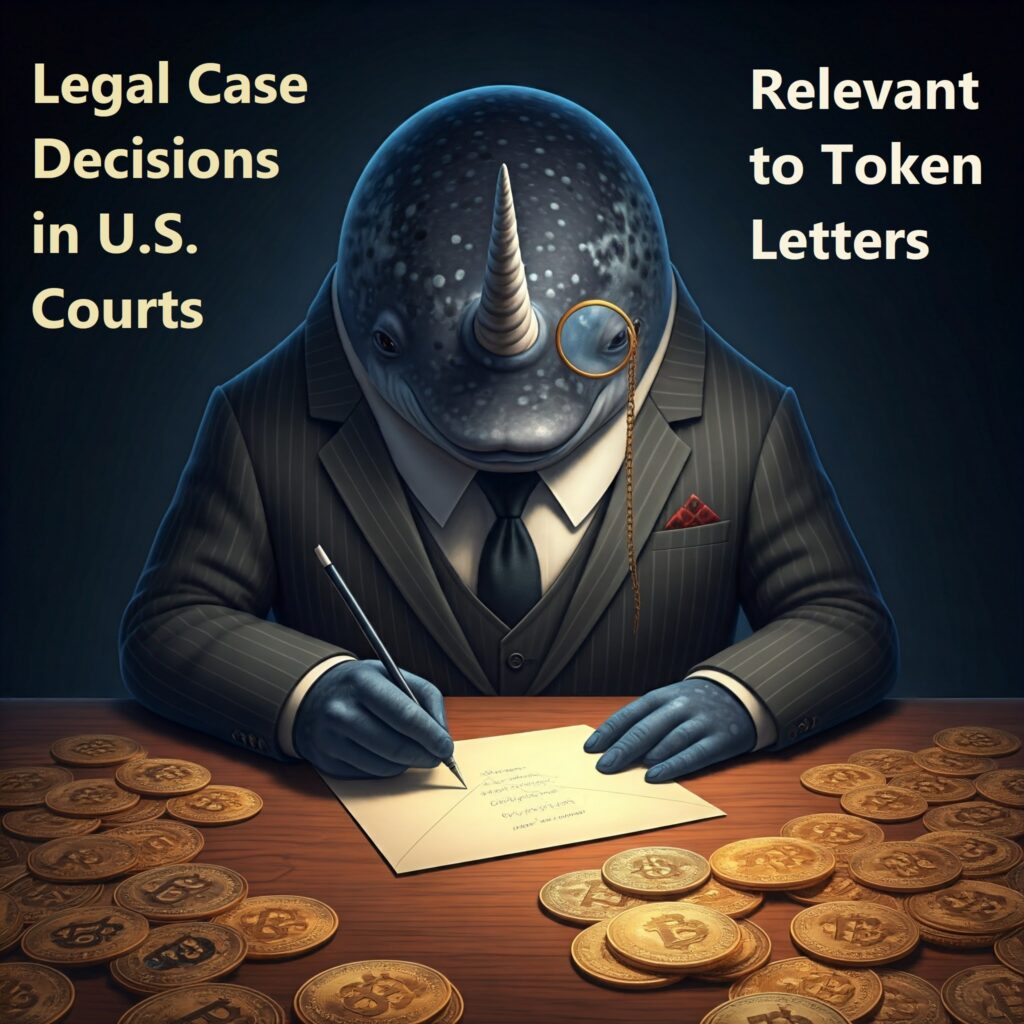The Token Letter
A Legal Opinion Letter / memorandium
Securities - Commodities - Crypto Exchanges
The Token Letter A Legal Opinion Letter / memorandium Securities - Commodities - Crypto Exchanges
is Your Token a Security?
Crypto Lawyers experienced in blockchain technology and securities laws must write an opinion letter before an Initial Coin Offering. Liquidity is critical to a successful ICO crypto token launch. The value of a token is made or broken often at ICO.
The Top Crypto Exchanges Require a Token Letter?
Having your crypto token listed on a top crypto exchange is critical to its success. The top crypto exchanges include:
Every Successful Crypto Token Must First Undergo a Securities Legal Analysis
Compliance with securities laws concerns each of these crypto exchanges. They do not want the added burdens of complying with securities laws. The list includes
-
Securities Act of 1933
-
Securities Exchange Act of 193
-
Trust Indenture Act of 1939
-
Investment Company Act of 1940
-
Investment Advisers Act of 1940
-
Uniform Partnership Act of 1997 Section 20
-
Sarbanes-Oxley Act of 2002
-
-
-
Rules and Regulations of the Securities and Exchange Commission
-
Rules and Regulations of the Commodities and Futures Exchange Commission
One manner in which crypto exchanges seek to avoid unnecessary government regulation is by requiring every new crypto token listed on their exchange to be accompanied by a legal opinion letter from a crypto/blockchain law firm detailing how the token fits within securities laws. This “token letter” is a necessary step to a crypto coin’s success.
The Parts of a
Token Letter
The crypto-securities lawyer must first become familiar with the details of the token to be offered. The token’s particular aspects, its governance, its use, its expected value will be fitted into existing securities laws.
A legal analysis will be conducted. Then, a legal opinion will be formed and explained, detailing why the new crypto token does or does not qualify as a “security.”
These “token letters” are typically made up of a number of parts. These parts include:
Our skilled crypto attorneys provide advice regarding the best course of action for these challenges. We facilitate the increase of money into the blockchain business. We protect the money from losses.
-
Who the Lawyer Authoring the Letter Represents
-
The Date of the Analysis & Conclusion
-
The Token Issuer’s Information
-
The Applicable Legal Jurisdiction(s)
-
The Assumptions the Legal Analysis is Making (what is unknown but presumed to be the case)
-
Setting Out the Applicable Law
-
The Facts of the Crypto Project (including the White Paper)
-
Where the Crypto Project Fits within the Existing Crypto Field
-
What Use/Task/Job/Function the Token is Intended to Accomplish
-
What the Tokens Do Not Do
-
Who is Intended to Possess the Token
-
The Documents that Set Out the Token’s Attributes
-
What is Presently Unknown About the Token’s Use (White Swans)
-
Similar Tokens, their Use, and Legal Status
-
The Analysis of the Crypto-Securities Lawyer, Applying the Relevant Securities Laws to the Facts of the Token
-
The Legal Opinion of the Lawyer Regarding the Token’s Securities Status
The following cases matter to Token Letters:

-
S.E.C. v. W.J. Howey Co., 328 U.S. 293, 298–99 (1946)
-
SEC v C.M. Joiner Leasing Corp., 320 U.S..344, 351 (1943)
-
Reves v. Ernst and Young, 494 U.S. 56, 61 (1990)
-
Golden v. Garafolo, 678 F.2d 1139, 1144 (2d. Cir. 1982)
-
Rivanna Trawlers Unlimited v. Thompson Trawlers, Inc., 840 F.2d 236, 240 n.4 (4th Cir. 1988)
-
SEC v. Life Partners, Inc., 87 F.3d 536, 545 (D.C. Cir. 1996)
-
SEC v. Int’l Loan Network, Inc., 968 F.2d 1304, 1308 (D.C. Cir. 1992)
-
SEC v. Koscot Interplanetary, Inc., 497 F.2d 473, 483 (5th Cir. 1974)
-
SEC v. Glenn W. Turner Enters., Inc., 474 F.2d 476, 482 (9th Cir. 1973)
-
United Housing Foundation, Inc. v. Forman, 421 U.S. 837, 852 (1975)
-
Uselton v. Comm. Lovelace Motor Freight, Inc., 940 F.2d 564, 574 (10th Cir. 1991)
-
-
Let's Discuss your Crypto Token
Your business will benefit from a premium exchange listing, an analysis, and a roadmap for legal compliance through a token letter.

Trial lawyer Matt Hamilton graduated from the University of Missouri in 1995 with Science degrees in Logistics, Marketing, and Business Administration. Juris Doctor, 1999.


